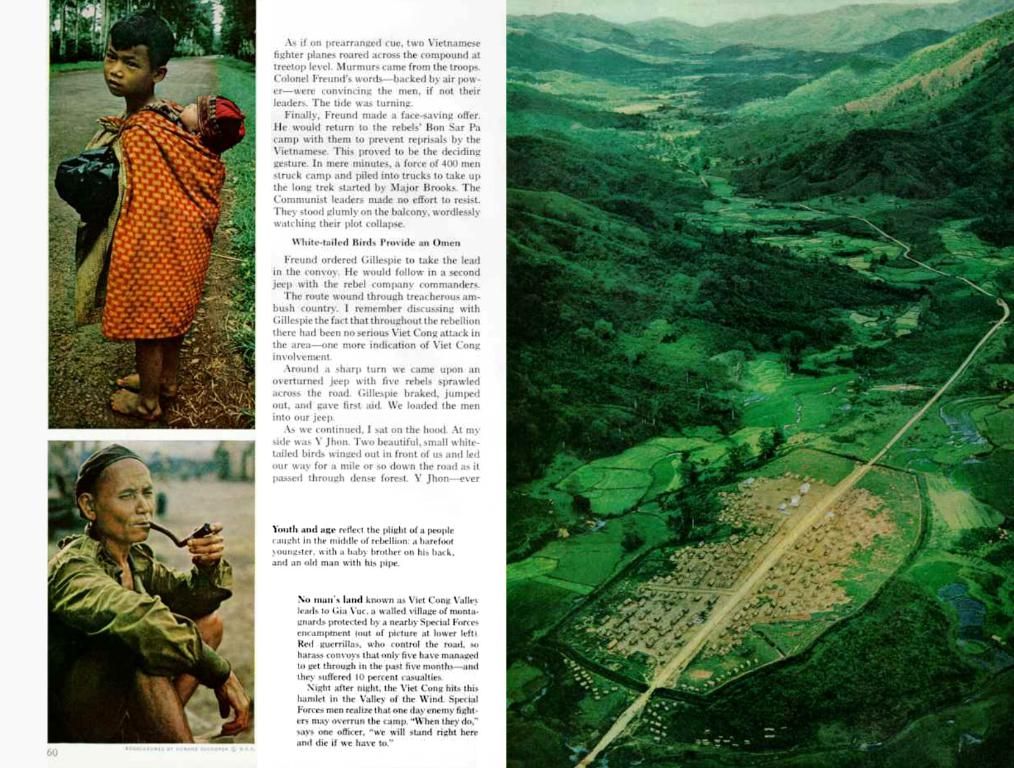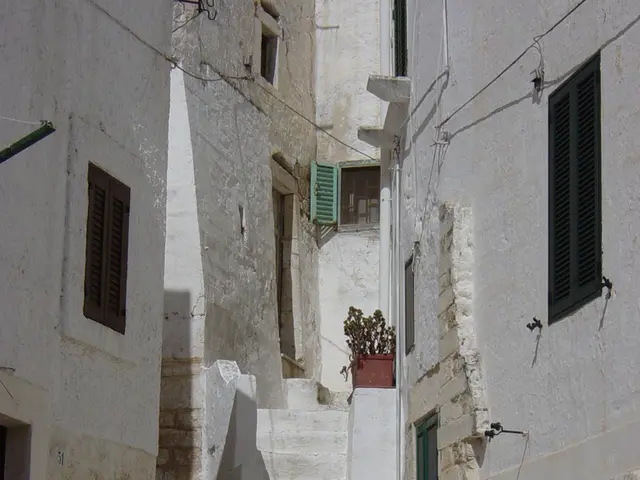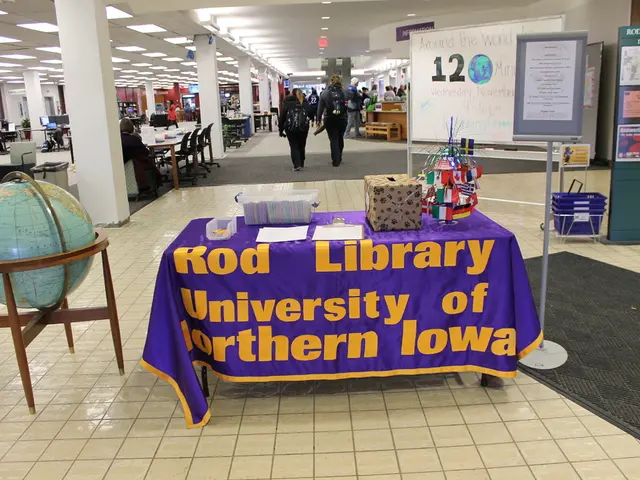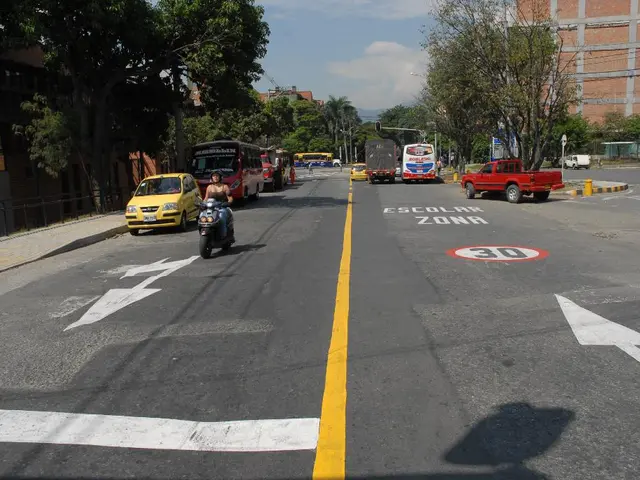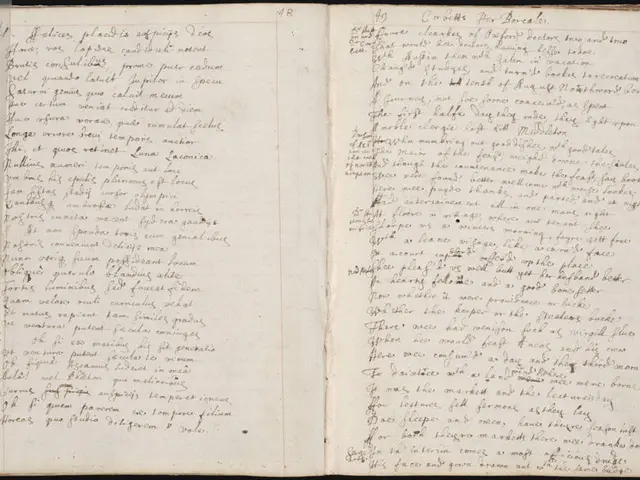Power outages persist, and food supplies are restricted amidst the second month of a blockade in Karabakh
Title: The Struggling Stretch: Nagorno-Karabakh's Ongoing Food and Electricity Crisis
Under the pale winter skies, the war-torn land of Nagorno-Karabakh grapples with a crippling crisis. Fueled by Azerbaijan's blockade, the autonomous region finds itself in a precarious position, facing a grim shortage of food and electricity.
In late December, Azerbaijani authorities squeeze the flow of life, imposing a blockade on the single land corridor linking Nagorno-Karabakh to the rest of the world. This drastic move has gutted essential supplies like food and medicine, leaving the region hanging by a thread.
The shivering residents scramble for basic necessities, standing in endless queues before scant shops. Their struggle intensifies as they see their once-plethoric shelves barren, offering only pitiful kilos of rice or pasta. Local brands bravely attempt to fill the void, but their resources are swiftly devoured.
A university professor living in Stepanakert, the region's unofficial capital, laments, "I spend countless hours foraging through shops, frantically searching for something to buy. Once they receive new stock, it's gone in an instant." She fears the worst is yet to come, "I dread a looming gas shortage. We may manage with food, but we'll certainly run out of warmth."
The service industry scenes a grim picture, too. Many cafés and restaurants teeter on the brink of collapse, their dim lights barely flickering in the fading hope they might remain afloat. Owners like Vadim Balayan fear they won't be able to weather the storm: "My stored supplies will last for now, but if the blockade persists, I'll likely have to close."
A pitiful offering of food and supplies trickles through the hands of the International Committee of the Red Cross (ICRC) and the Russian peacekeeping forces stationed in the region since the end of the Second Karabakh War in 2020. The deliveries amount to a minuscule fraction of the pre-blockade 12,000 tons of goods shipped each month, barely scraping the surface of the local population's needs, estimated at a staggering 120,000 souls.
The dwindling food stocks have far-reaching impacts, affecting education as well. Kindergartens and some schools have temporarily closed their doors due to the food shortages, leaving nearly 7,000 children without a formal education.
The healthcare system labors under the immense pressure, too. The terrain has made the import of medications all but impossible, and emergency operations are the only ones that can be carried out. "The medical system operates in crisis mode," says a medical professional, Karen Baziyan. "We can still function thanks to the ICRC's assistance. If they cease their deliveries, we'll be unable to operate."
The lack of electricity adds to the region's woes. The damage to power cables and Lachin's fall under Azerbaijani control in August 2022 has created a chilling darkness in the homes of the remnants of Armenian-populated Karabakh. The local grid operator, Artsakhenergo, blames the uncooperative Azerbaijani authorities for the inability to inspect the area, much less repair it.
Residents have taken to huddling together, pooling their resources, and seeking solace in the warmth of community. In this grim situation, survival is everything. But hope flickers, too, in the courage and resilience of the people of Nagorno-Karabakh, a silver flame amidst the snowstorm.
deadline: The deadline for this task was 29/03/2023 18:00 PM
footer: Powered by Mistral AI. This text was generated with the aim of creating an engaging article while incorporating enrichment data to provide context and depth. For more information about the enrichment data applied in this text, please refer to the guidelines provided in the instructions. Any errors or inaccuracies are unintentional and should be reported for review.
In the midst of a persisting food and electricity crisis, Nagorno-Karabakh faces an escalating health issue due to the blockade imposed by Azerbaijani authorities. Amidst the severe shortage of essential goods like food and medicine, the local healthcare system operates in crisis mode, with emergency operations being the only viable option.
Against the backdrop of empty shelves in supermarkets, university professors like the one from Stepanakert spend countless hours searching for sustenance. A rising concern is a potential gas shortage, which could plunge the region into freezing temperatures.
As the situation worsens, businesses like cafes and restaurants are on the verge of collapse due to depleting food supplies. Vadim Balayan, a restaurant owner, fears the prolongation of the blockade might force him to shut down his establishment.
Meanwhile, the education sector feels the brunt of the crisis as well. Kindergartens and schools temporarily close their doors due to food shortages, leaving nearly 7,000 children without formal education.
Beyond the immediate crises, the ongoing deadlock in Nagorno-Karabakh also has far-reaching impacts on the environment, lifestyle, and general news. The uneasy silence of political discussions, interspersed with occasional flare-ups of crime-and-justice issues, echoes the lingering tension in the war-torn region.
Amidst the grim circumstances, residents strive to maintain their community spirit as they huddle together for warmth and support. In this dark period, the resilience of the people shines like a beacon of light, fueling hope for a brighter tomorrow.
